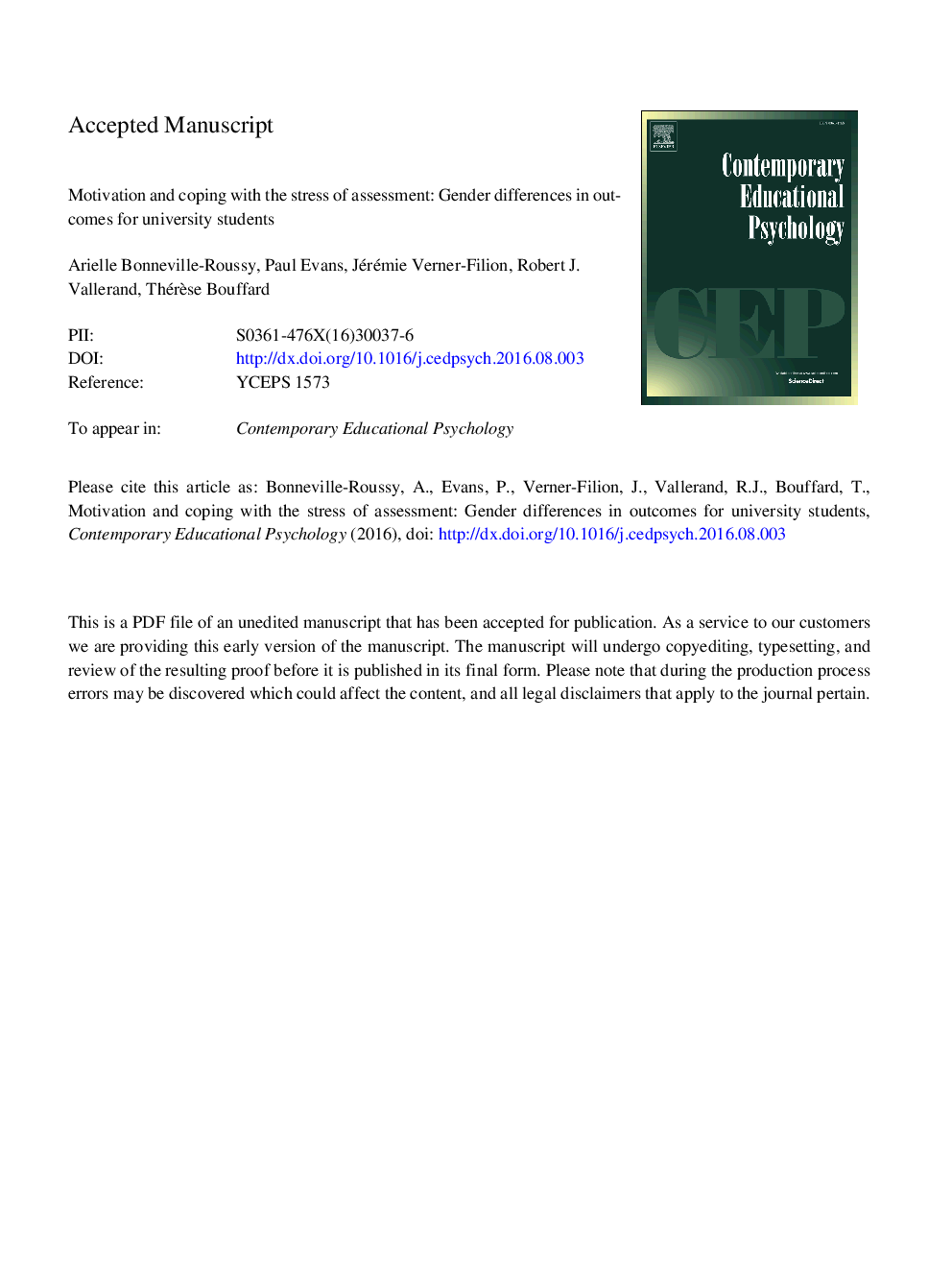ترجمه فارسی عنوان مقاله
انگیزش و مقابله با استرس ارزیابی: تفاوت های جنسیتی در نتایج برای دانشجویان
عنوان انگلیسی
Motivation and coping with the stress of assessment: Gender differences in outcomes for university students
| کد مقاله | سال انتشار | تعداد صفحات مقاله انگلیسی |
|---|---|---|
| 156282 | 2017 | 62 صفحه PDF |
منبع

Publisher : Elsevier - Science Direct (الزویر - ساینس دایرکت)
Journal : Contemporary Educational Psychology, Volume 48, January 2017, Pages 28-42
ترجمه کلمات کلیدی
نظریه خودمختاری، فشار، مقابله، اهداف حرفه ای، دستاورد تاثیر می گذارد، تفاوت های جنسیتی،
کلمات کلیدی انگلیسی
Self-determination theory; Stress; Coping; Vocational intentions; Achievement; Affect; Gender differences;

